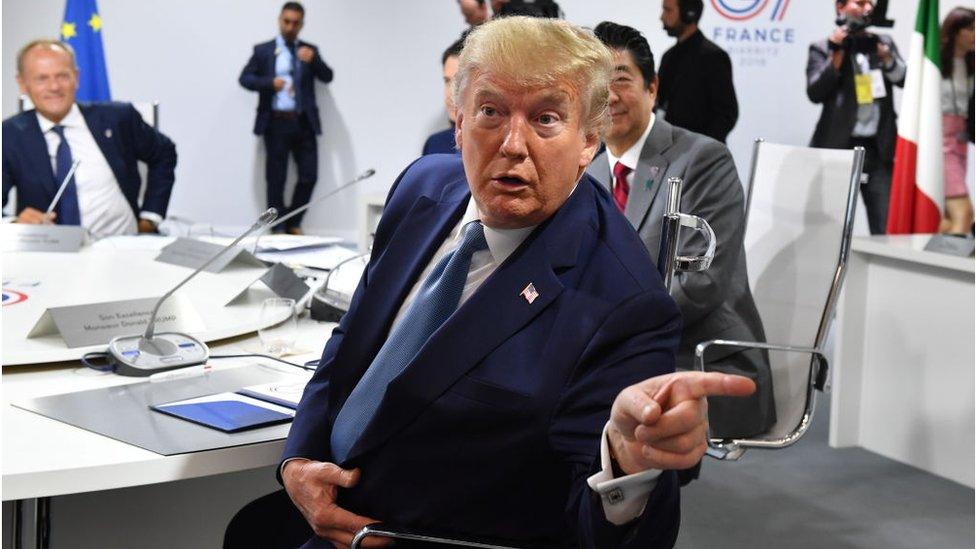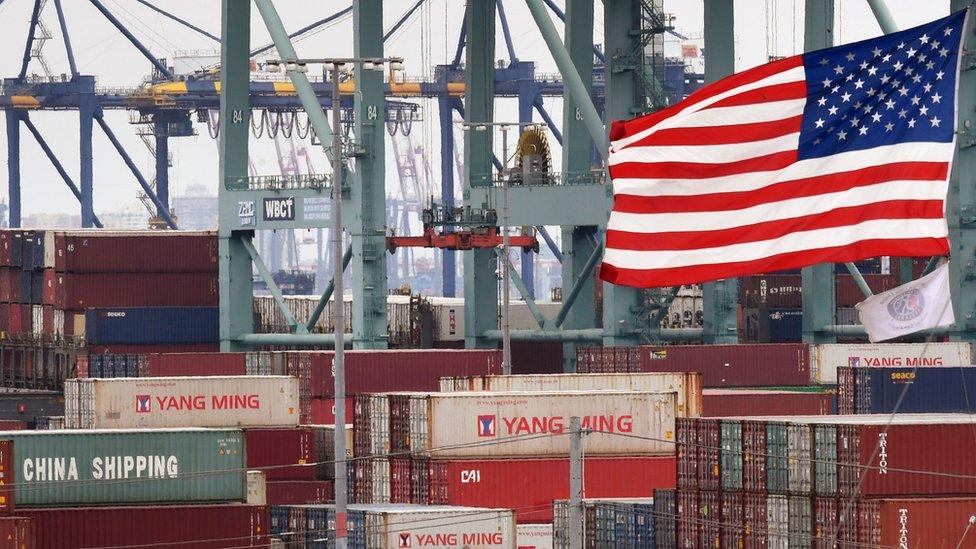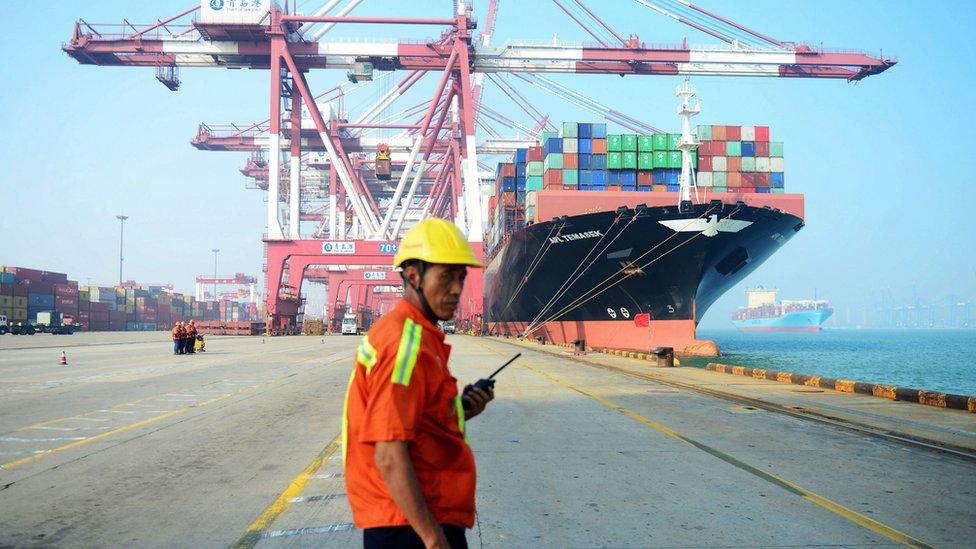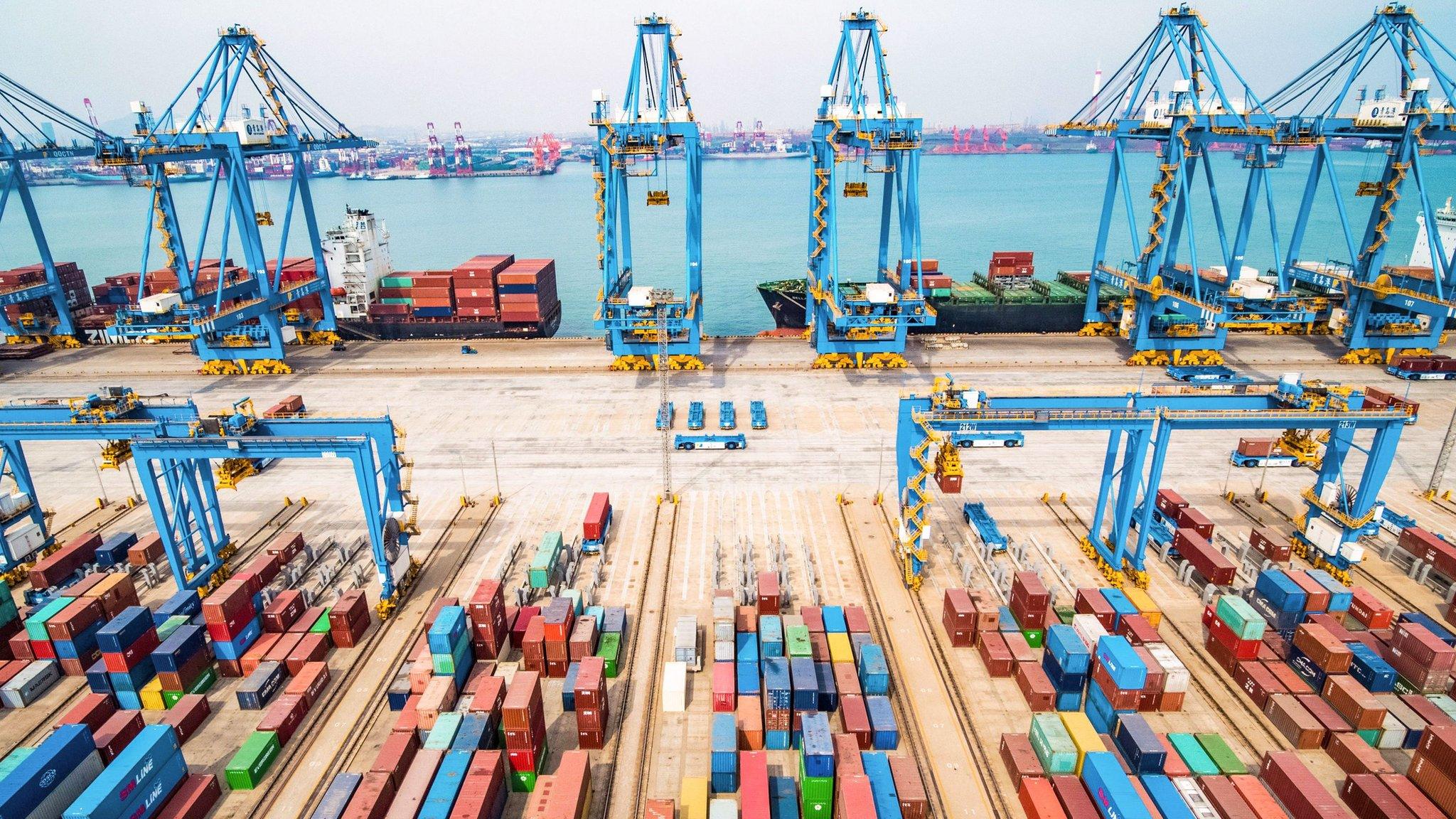Trump says US and China to resume trade talks
- Published

US allies have pressured Donald Trump at the G7 summit, saying the trade war is threatening the world economy
President Donald Trump has said the US and China will "very shortly" resume trade talks after a weekend of escalating tension with Beijing.
"China called last night... said let's get back to the table. So we'll be getting back to the table," he said.
On Friday Mr Trump sharply hiked tariffs on billions of dollars of Chinese imports in retaliation for fresh duties from Beijing.
China said it was unaware of any recent telephone call with the US on trade.
Mr Trump sent out conflicting messages over the weekend, at first appearing to express regret about the latest tariffs, only for the White House to retract his comments on Sunday.
However, at the G7 summit in Biarritz on Monday he said Chinese officials had made two "very, very good calls" on Sunday night and that Beijing wanted to "make a deal".
Suggesting his pressure had brought the Chinese back to the negotiating table, he added: "They hurt very badly, but they understand this is the right thing to do.
"We're going to start very shortly to negotiate... but I think we're going to make a deal."
The US is trying to force Beijing to reform its trade practices, arguing that American firms face an uneven playing field due to issues such as intellectual property theft.
However, US allies have pressured Mr Trump at the G7 summit in France, warning that the trade war is threatening the global economy.
Jay Powell or Xi Jinping: Which chairman is Trump's enemy?
Asian stock markets tumbled on Monday, but US and European shares ended higher after Mr Trump's more conciliatory comments. However, it was a more mixed picture on Tuesday, as European markets traded lower and most Asian indexes climbed.
A report from S&P Global suggested that, despite the apparent detente, investors remained nervous.
"These recent events have shaken investor confidence further, and incrementally worsened the global business and economic outlook," it said.
How has the trade war escalated?
On Friday, the US said it would begin the process of raising tariffs on around $250bn (£203.8bn) of Chinese imports , externalfrom 25% to 30% from 1 October.
The US also said fresh tariffs on an additional $300bn of Chinese goods, announced earlier this month, would now be at a rate of 15% instead of 10%. The first batch of those tariffs will be introduced in September.


In a tweet, Mr Trump said he planned to order US firms working in China to move their operations back to the US, although it is unclear how he could force them to comply.
The moves came after China delivered its latest trade war strike, announcing plans to hit $75bn worth of US goods with new tariffs and hikes to existing duties.
In Beijing, foreign ministry spokesman Geng Shuang said he had not heard that talks were about to re-start.
But he said: "We strongly urge the US not to miscalculate the situation and immediately cease its wrong actions. If the US implements its plan of raising tariffs, China will definitely continue to take measures and safeguard its own legitimate rights. China does not accept any threats or intimidation."
How did we get here?
The world's two largest economies have been locked in a bruising trade battle for the past year that has seen tariffs imposed on billions of dollars worth of one another's goods.
Gary Cohn, Trump's former US chief economic adviser, weighs in on US-China trade war
Mr Trump has long accused China of unfair trading practices, but in China there is a perception that the US is trying to curb its rise.
Sharp falls in the yuan earlier this month prompted the US to officially name China a "currency manipulator", adding to tensions between the two countries.
- Published16 January 2020

- Published23 August 2019

- Published1 August 2019

- Published10 May 2019
